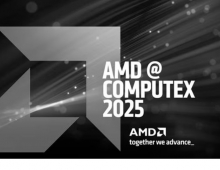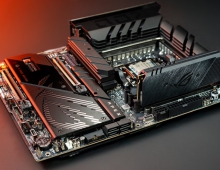
Slow Game-Console Chip Demand Will Have Negative Effect on AMD Sales
Advanced Micro Devices Inc., the No. 2 maker of computer processors, gave a lower that expected third-quarter sales forecast, indicating low orders for game-console chips from Microsoft and Sony.
Revenue in the current period will be about $1.8 billion, AMD said Tuesday in a statement. The company also pared its forecast for annual revenue.
While sales of PC-related products are improving, the company said revenue is taking a hit because demand from game-console makers is falling short of its original forecasts this year. In the second quarter, revenue in the division that includes server processors and custom chips for consoles declined 12%, AMD said.
The company’s second-quarter net income fell to $35 million, compared with $116 million a year earlier. Revenue in the period was $1.53 billion, 13% lower than a year earlier.
Gross margin, or the percentage of sales remaining after deducting the cost of production, widened to 41% in the second quarter. A year earlier, that measure of profitability came in at 37%.
AMD said it expects full-year revenue to gain at a percentage in the mid-single digits. At the same time, the company slightly raised its forecast for gross margin for all of 2019, to 42%. The sequential and year-over-year increases are expected to be driven by Ryzen, EPYC and Radeon product sales.
Under Lisa Su, AMD is trying to stage a comeback in the business of chips for servers. After owning about a quarter of that market a decade ago, delays to new chips and a failure to keep boosting performance allowed Intel to banish AMD to less than 1% market share. AMD’s new Epyc range of server processors is aimed at clawing back those lost orders.
AMD is also trying to exploit Intel’s delays in shifting production to more advanced technology. AMD now outsources manufacturing of its best chips to Taiwan Semiconductor Manufacturing Co., which seems to be more than a year ahead of Intel in implementing new processes.
At the end of last year, AMD had 3.2% of the market for server chips, up from 0.8% 12 months earlier.





















